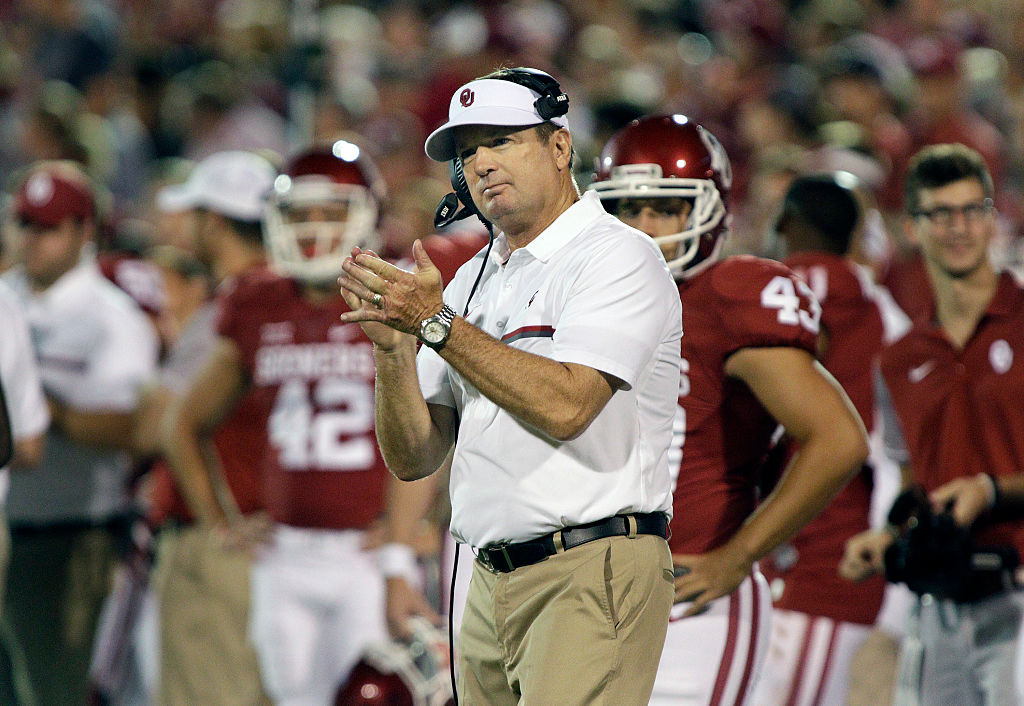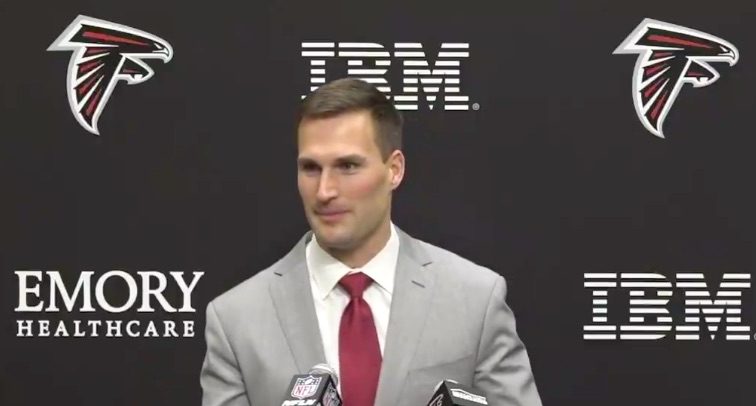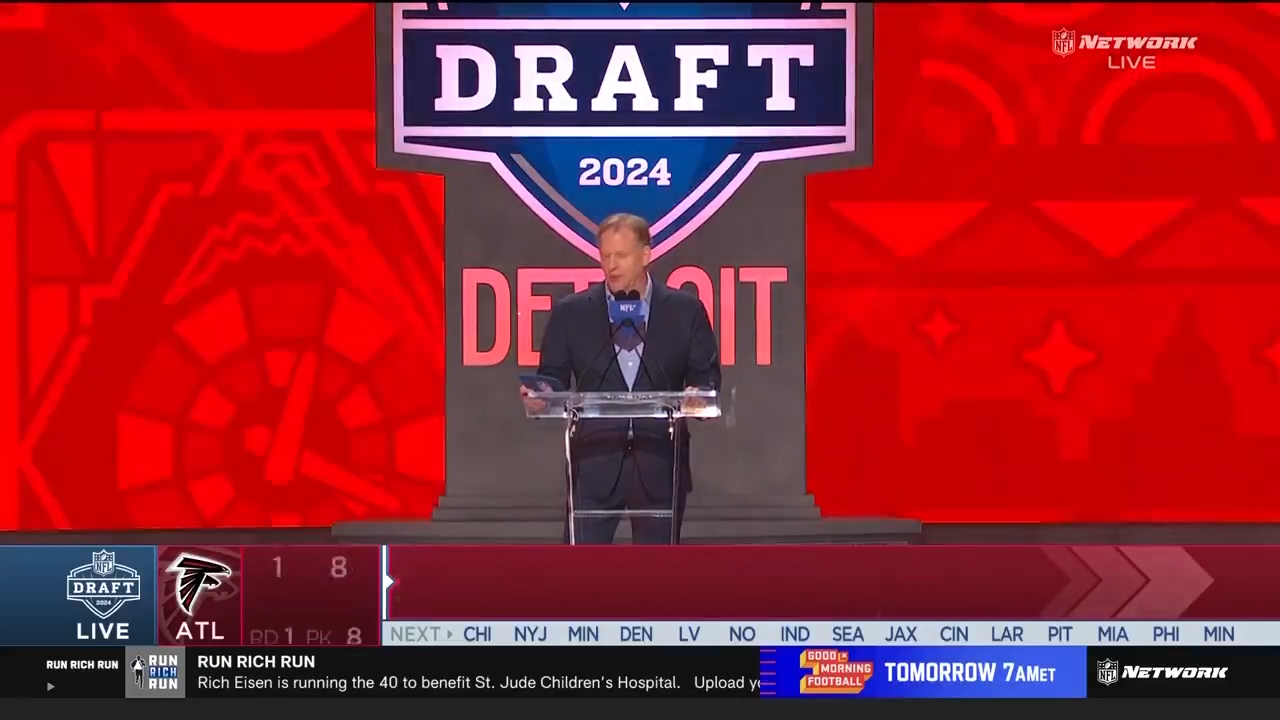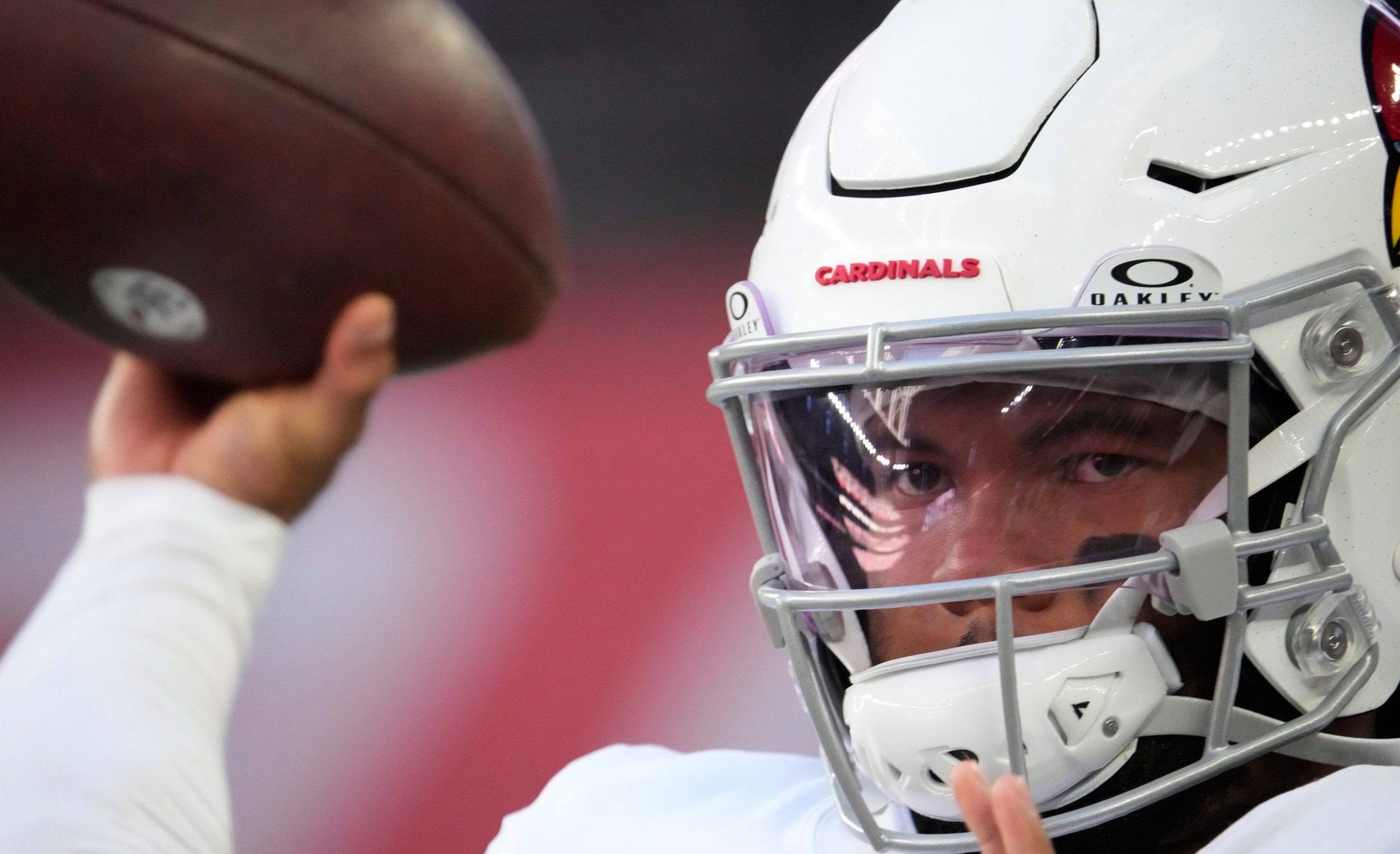Bob Stoops’s retirement as head coach of the Oklahoma Sooners was a stunning move in college football, and a potential sea change for OU football. In 18 years as coach, Stoops set an impossibly high bar, for the program — one that was already pretty well-accustomed to success.
He won 190 games from 1999 to 2016, including nine bowl games and one national championship (in 2000, which was just his second season). Stoops’s Sooners also managed 10 conference titles in that stretch — a stunning feat given the Big 12’s makeup for much of that stretch as one of college football’s preeminent leagues.
Matched up with programs like Nebraska, Texas, TCU, Baylor, Oklahoma State and others for that time period, recording that many victories would seem unlikely at best.
And yet, it was par for the course in Norman, as a program that has been historically great somehow managed to hit a hard reset in the late 1990s and get better immediately. And then, they stayed there for nearly two decades straight, thanks to Stoops’s stability and leadership. It’s hard for college football programs to be consistently great for an extended length of time. But for 18 seasons, that’s what OU has been.
Therein lies the toughest challenge for the Sooners going forward too, however.
Lincoln Riley, 33, will replace Stoops, in a move that’s not unprecedented. Long-time coaches depart regularly, and despite this being Riley’s first go-around as a head coach, the program he inherits is largely in the best shape it could be.
Oklahoma has won two straight conference titles, managed two straight top-five finishes and has firmer footing on its future than any other Big 12 program right now. After a brief lull in recruiting, the Sooners are back among the top 10, pulling in the eighth-best class of 2017, according to 247Sports.
With all of this sustained success, and the stage set for it to continue, Riley faces an unenviable task in year one (and an even tougher one going forward). Looking at recent college football coaching changes and lengthy tenures, there’s hardly any comparisons for the job Stoops has done.
His “peers” can be defined as coaches who started when he did (1999) or later, and lasted at least 10 years in that spot. To narrow the list a bit further, they’d also had to have contended for a national title at some point in that stretch. The nine other names to qualify:
- Kirk Ferentz, Iowa (18 years)
- Gary Patterson, TCU (17 years)
- Gary Pinkel, Missouri (15 years)
- Mark Richt, Georgia (15 years)
- Mike Gundy, Oklahoma State (12 years)
- Kyle Whittingham, Utah (12 years)
- Les Miles, LSU (12 years)
- Steve Spurrier, South Carolina (11 years)
- Mark Dantonio, Michigan State (10 years)
Stoops has won more major conference titles than all of those coaches combined.
He has the highest winning percentage (.798) of any of them, too. Stoops is also one of just two of those coaches (the other being Miles) with a national championship under his belt.
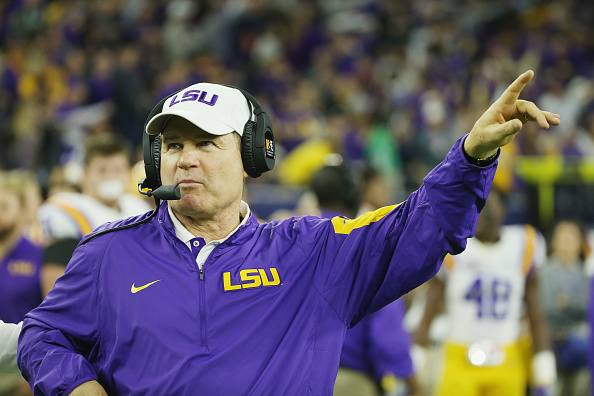
To top it all off, Stoops also left at the apex of his game, with a program near the apex of its powers. Miles, Spurrier, Richt and Pinkel have all departed the jobs listed above, and those programs experienced declines at the back-end. At LSU, Miles was fired after a 2-2 start to 2016. Spurrier simply called it a career when South Carolina was 2-4 at the beginning of last season. Richt was 9-3 in his final season at Georgia (2015), but was unranked in two of his last three seasons. Pinkel was 5-7 in his final year, despite Missouri winning the SEC East in each of the two seasons before that.
Their successors all inherited difficulties that Riley won’t at Oklahoma. For the Sooners, the talent base is as strong as ever and the conference is incredibly winnable (especially before Tom Herman gets Texas fully operational). But to think that taking over those jobs are harder than what Riley will have to do in Norman is hard to fathom.
Stoops won more games (190) than any Oklahoma coach ever has. His winning percentage is only behind the legendary Barry Switzer (.837) and Bud Wilkinson (.826), respectively.
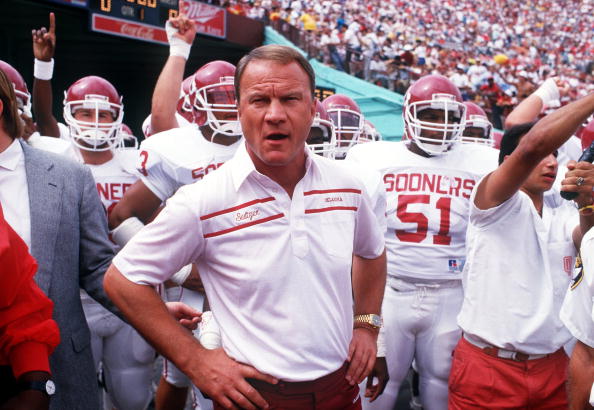
Oklahoma went just 61-50-3 in the gulf between Switzer and Stoops. The latter won his 60th game as Sooners head coach by the middle of his sixth season.
None of this is to say that Riley can’t succeed at Oklahoma, or that he won’t be able to live up to the high expectations set by the Stoops regime before him. He very well could. But it’s worth pointing out that while he inherits what appears to be a well-oiled machine of a program, the biggest challenge of all may be the shadow Stoops will cast (and quickly) should Riley falter early.
The young coach will get some ramp, of course. However, for a post-Stoops Oklahoma program, we’ll see just how much space that gives him to grow into the role (and the big shoes he’ll need to fill).

